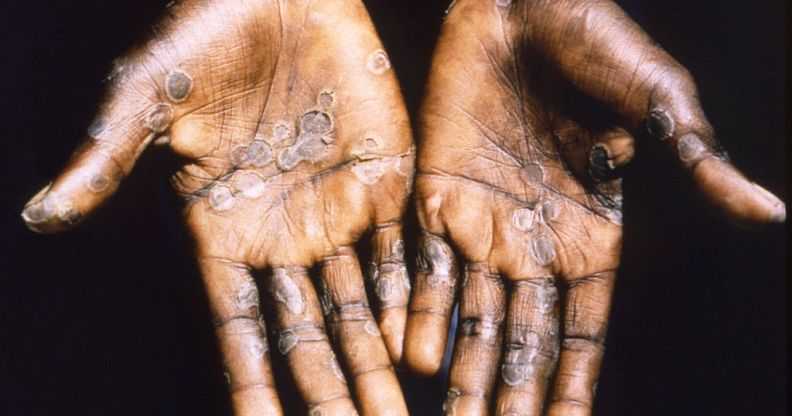Understanding Mpox: A Resurgence in Ghana and West Africa
Mpox, formerly known as monkeypox, has reemerged as a public health concern in Ghana and the broader West African region. The disease, characterized by its distinctive rash and flu-like symptoms, has prompted renewed vigilance and public health interventions. In Ghana, three confirmed cases have been reported in 2025, marking a resurgence of the virus and prompting a swift response from health authorities. While all reported cases have presented with mild symptoms and are currently under self-isolation, the situation underscores the need for continued surveillance, public awareness campaigns, and proactive measures to prevent further spread. The recent cases highlight the importance of maintaining hygiene practices, particularly hand sanitation, as a primary defense against the virus.
Ghana’s Proactive Response and Regional Context
The Ghana Health Service (GHS) has taken a proactive stance in addressing the Mpox resurgence. Their comprehensive approach includes active case surveillance across all 16 regions, contact tracing to identify and monitor potential exposures, and enhanced training for medical personnel on Mpox identification and management. These measures reflect a commitment to containing the outbreak and minimizing its potential impact. The establishment of diagnostic capabilities at the National Public Health Reference Laboratory (NPHRL) and the designation of the Ghana Infectious Diseases Centre (GIDC) as the primary isolation facility further strengthens the country’s preparedness and response capacity. Ghana’s actions are particularly crucial in the context of the wider regional spread of Mpox in West Africa, with countries like Sierra Leone, Nigeria, and Côte d’Ivoire facing significant challenges in controlling the outbreak.
Clinical Presentations and Investigations: Insights from the Confirmed Cases
The three confirmed cases in Ghana provide valuable insights into the clinical presentation and progression of Mpox. The first case, a 32-year-old man receiving antiretroviral treatment, presented with a combination of fever, chills, and the characteristic pustular and vesicular lesions on the trunk, gluteal area, and anorectal region. The second case, a 34-year-old man, experienced a persistent generalized rash for two weeks, highlighting the potential delay in seeking medical attention and the importance of early diagnosis. While details about the third case are limited in the provided information, the collective data underscores the variable presentation of Mpox and the need for thorough clinical evaluation. Investigations into all cases are ongoing, with health teams meticulously tracing contacts and conducting community case searches to identify potential transmission chains and implement appropriate interventions.
Public Health Messaging and the Importance of Prevention
Dr. Dennis Odai Laryea, Deputy Director for Disease Surveillance at the GHS, emphasized the significance of personal hygiene, particularly hand sanitation, in preventing the spread of Mpox. His message underscores the critical role of public health education and awareness campaigns in empowering individuals to protect themselves and their communities. The emphasis on hand hygiene, a practice widely adopted during the COVID-19 pandemic, reinforces the importance of maintaining these habits to combat infectious diseases. Given that Mpox transmission primarily occurs through close bodily contact, adherence to hygiene protocols is crucial in breaking the chain of transmission. The GHS’s proactive communication underscores the shared responsibility in preventing further spread and protecting public health.
Regional Implications and the Need for Collaborative Efforts
The Mpox outbreak in Ghana is not an isolated incident, but part of a broader regional challenge in West Africa. The escalating cases in neighboring countries highlight the interconnectedness of health security and the need for collaborative regional efforts. Sharing best practices, coordinating surveillance activities, and pooling resources for diagnostics and treatment are essential components of a comprehensive regional response. The situation necessitates strengthening cross-border collaboration, enhancing information exchange, and coordinating public health interventions to effectively address the regional Mpox outbreak. The interconnectedness of the region requires a unified approach to prevent further spread and mitigate the impact of the virus.
Looking Ahead: Continued Vigilance and Preparedness
The Mpox resurgence in Ghana and West Africa underscores the importance of ongoing vigilance and preparedness. While the current cases in Ghana present with mild symptoms, the potential for wider spread and more severe outcomes necessitates maintaining proactive measures. Continued surveillance, rapid case detection, and effective contact tracing are crucial for containing the outbreak. Investing in diagnostic capacity, ensuring access to appropriate medical care, and strengthening public health infrastructure are essential components of a long-term strategy to manage and prevent future outbreaks. The current situation serves as a reminder of the dynamic nature of infectious diseases and the need for sustained public health efforts to protect populations from emerging and re-emerging threats.


